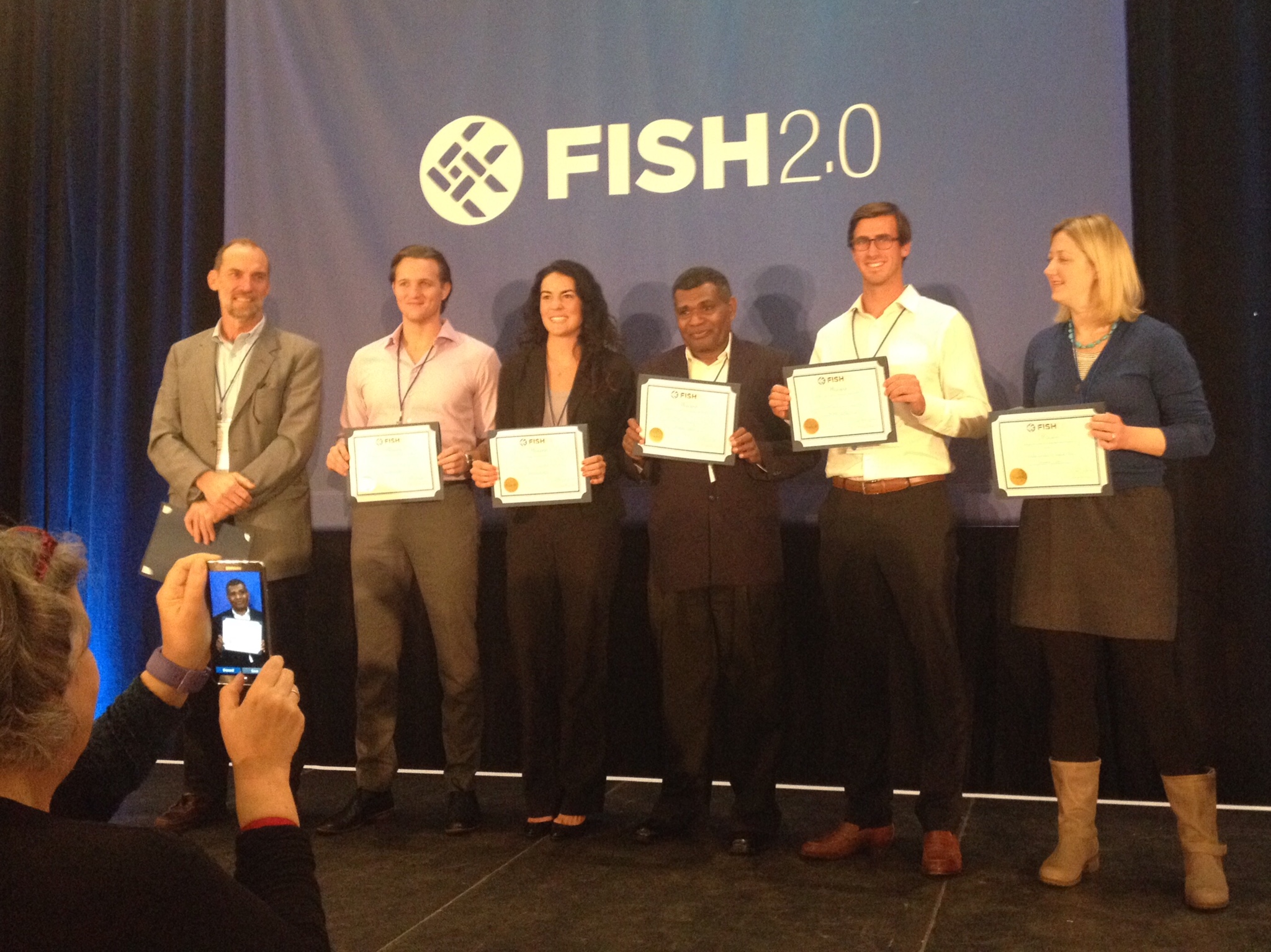From a Kampachi tuna farm in Baja California, Mexico, to a seafood distributor in Vanuatu in the south Pacific, to a Chilean company that recycles fishing gear into trendy lifestyle products, to indoor vegetables farms growing on fish waste in London, the winners of the Fish2.0 business competition showcased global innovation in sustainable seafood.
“I’m impressed by the passion and the quality of the entrepreneurs,” said venture capitalist Paul Matteucci of US Venture Partners, who served as a judge for the competition. He said innovations in fish feed and new sources of protein were a key trend that emerged from the two-day conference at Stanford University.
Two winners, for strongest market potential and greatest potential for social and environmental impact, were selected in three categories representing stages of company growth. Winners will receive small cash prizes and mentorship, but the real opportunity was the chance to give their five-minute pitches to a room full of interested investors.
Among pre-revenue companies, judges picked Kampachi Farms Mexico as having the strongest market potential. The kampachi tuna, an alternative to the over-fished wild bluefin, are raised in an open ocean, deepwater fish farm in Baja California, Mexico. Co-CEO Neil Sims helped move the company from Hawaii to reduce costs and get closer to markets.
Judges thought Canadian Mather Carscallen had the greatest impact potential with RiverBox, an algae cultivation platform with a closed-loop waste-to-feed system for aquaculture farms.
Among companies already generating revenues, Salty Girl Seafood was selected for the market potential of their sustainable, traceable, chef-quality packaged seafood. Bureo, the Chilean-based and American-operated product design and lifestyle brand company that “upcycles” discarded fishing gear was judged to have the greatest impact.
Both winners among growth-stage companies were, ironically, selected for their impact rather than their business strength. Alfred Kalontas, founder and CEO of Alfa Fishing , a small fishing and distribution business in Vanuatu, traveled for two weeks to attend the finals. The other winner was Kelly Harrell, representing the Alaska Community Seafood Hub.
Semi-finalists made 90-second pitches that were just as compelling as the finalists’. The audience chose as their favorites Pelagic Data Systems in San Francisco, CA and GrowUp Urban Farms Ltd in London, UK.
This is the second cycle for Fish 2.0, which staged its first competition in 2013. Judging from the audience applause at Stanford, the contest itself deserves a prize for whetting the appetite of investors with so many promising seafood companies.
[seperator style=”style1″]Disclosure[/seperator]
ImpactAlpha’s Financing Fish follows investors and entrepreneurs seeking opportunities in the $390 billion seafood industry’s shift towards sustainability. Sign up for the Financing Fish newsletter.











